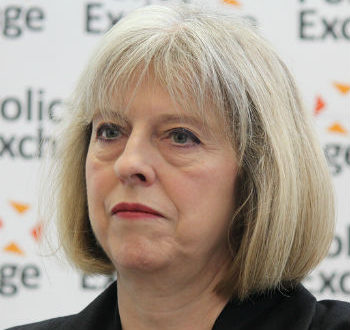Technology firms and security experts have again hit out at Theresa May’s promise to tighten internet regulation following the London attacks. In the wake of the attacks – which killed seven people on Saturday night – May said that certain areas of the internet must be closed because tech giants provided a ‘safe space’ for terrorists to operate in.
May said: "We cannot allow this ideology the safe space it needs to breed. Yet that is precisely what the internet, and the big companies… provide. Culture Secretary Karen Bradley said social media companies had successfully taken action against indecent images of children. We now need to see the same response in terms of extremism and radicalisation. We know it can be done and we know the internet companies want to do it."
Meanwhile, Home Secretary Amber Rudd again called for tech firms to step up their efforts to take down extremist content and limit the amount of end-to-end encryption that terrorists can use. Rudd had previously called for a ‘back-door’ to be built into services such as WhatsApp following the Westminster attack.
While Twitter, Facebook and Google said they were investing heavily in the area, an internet advocacy group said social media was not the problem, and an expert in radicalisation branded May’s criticism ‘intellectually lazy’.
The Open Rights Group warned that politicians risked making terrorists’ even harder to track online by ‘pushing them into darker corners of the web’. "While governments and companies should take sensible measures to stop abuse, attempts to control the internet is not the simple solution that Theresa May is claiming," a spokesman for Open Rights said.
Meanwhile, Professor Peter Neumann, director of the International Centre For The Study Of Radicalisation at King’s College London, slammed May’s comments as uninformed: "Big social media platforms have cracked down on jihadist accounts, with result that most jihadists are now using end-to-end encrypted messenger platforms e.g. Telegram. This has not solved problem, just made it different… moreover, few people (are) radicalised exclusively online. Blaming social media platforms is politically convenient but intellectually lazy."
Meanwhile Liberal Democrats leader Tim Farron weighed in on the argument, heaping further criticism on the prime minister, comparing May’s plan to North Korea’s and China’s state monitoring. “These issues are not going be solved with political gimmicks or by banning particular technologies,” Farron wrote in an article for the Guardian.
“Instead of posturing, politicians need to work with technology companies like Facebook, Twitter and WhatsApp, and with other countries, to develop solutions that work to keep people safe.The alternative is a government that monitors and controls the internet in the way that China or North Korea does. If we turn the internet into a tool for censorship and surveillance, the terrorists will have won. We won’t make ourselves safer by making ourselves less free.”
 PCR Tech and IT retail, distribution and vendor news
PCR Tech and IT retail, distribution and vendor news



